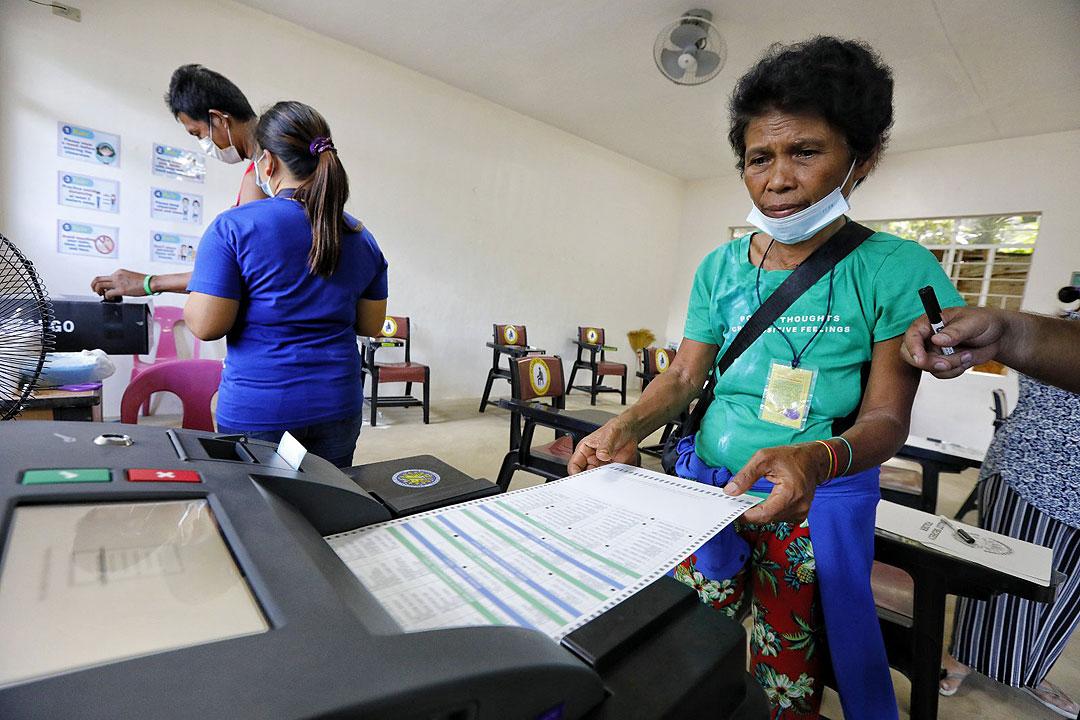Lawmakers told to legislate bill vs turncoats that is fool-proof

By Beatriz Marie D. Cruz
PROPOSALS to bar party-switching before and after elections should be fool-proof to ensure unscrupulous politicians won’t circumvent the proposed law, according to political analysts.
Measures against political turncoats should have a “a more holistic approach,” said Jean S. Encinas-Franco, a political science professor at the University of the Philippines (UP).
“It’s not just one set of proposals but rather an integrative approach such that the unintended consequence can be studied,” she said by telephone at the weekend.
“If you ban the one politician from being a turncoat, then that politician might actually also just field in a relative who can run for another party.”
Congress has been urged to pass bills that will penalize political butterflies or those who jump from one party to another.
Two House bills are seeking to bar turncoats from running during the next election or from being appointed to any public office. They also cannot assume a high position in their new party and should give back funds received from their old party.
There is no counterpart measure at the Senate.
Rogelio Alicor L. Panao, who also teaches political science at UP, said the bills should also include provisions that encourage citizen participation.
“There should be a focus on how citizens could be enticed to assemble and articulate their interests,” he said in a video interview, noting political loyalty should not be the only focus of the bill.
Citizen participation in a party can be encouraged by opening up employment opportunities, subsidy or tax exemptions if they’re a member of a political party.
“Political parties are linkages between politicians and citizens,” he said. “Devising mechanisms will entice other people to join you.”
BANDWAGON
“A weak Legislature produces weak political parties,” Cleve Kevin Robert V. Arguelles, who teaches political science at De La Salle University, said by telephone.
He added that imposing penalties on violators would not by itself strengthen political parties. “If you look at party deflection laws across the world, more established democracies would have very little penalties,” he said.
“If the Philippines has a strong Legislature capable of properly exercising its power of the purse, then they’re not afraid of standing up against the Executive,” Mr. Arguelles said.
He also said many candidates join the ruling and dominant party given the bandwagon effect — a voter is likely to pick a candidate who is likely to win.
“Especially in the lower House, candidates join the president’s party because there are perks and incentives.”
“The Office of the President is quite powerful so you would want be on the good side of the president,” Mr. Arguelles said.
Bills against turncoatism would ensure stronger and more transparent political parties, Deputy Minority Leader and Party-list Rep. France L. Castro said in a Viber message.
She added that Filipinos should be more aware of the importance of political parties. “If the people understand the relevance of having strong political parties, then they will punish politicians.”
The two House bills seek to allow the government to fund political parties through a “state subsidy fund.”
Mr. Panao said public funding could limit the influence of private interests. “Naturally, there would be economic inequality, because their interest would be magnified, and these get translated into policies,” he said.
“Public funding may also increase transparency of electoral expenditures through government audits.”
But public funding increases the gap between the political elite and citizens, Mr. Panao said. “It preserves the status quo that keeps established parties and candidates in power.”
Ms. Castro said the public would not benefit from government-funded political parties and would only boost the political elite.
“If parties will have their own finances, hopefully not just from the government but from its membership, then it can act as an independent and autonomous political body from this very influential, economic and political groups,” Mr. Arguelles said. “It can focus on building its own party and membership,”
Mr. Panao cited the lack of public interest in the anti-turncoat bills because they don’t touch more urgent concerns like unemployment and food prices. “Once the people are triggered in a way that the measures affect their personal lives, this will create noise.”
“If the people understand the relevance and importance of political parties, of having strong political parties, then they will punish politicians,” Ms. Franco said.



